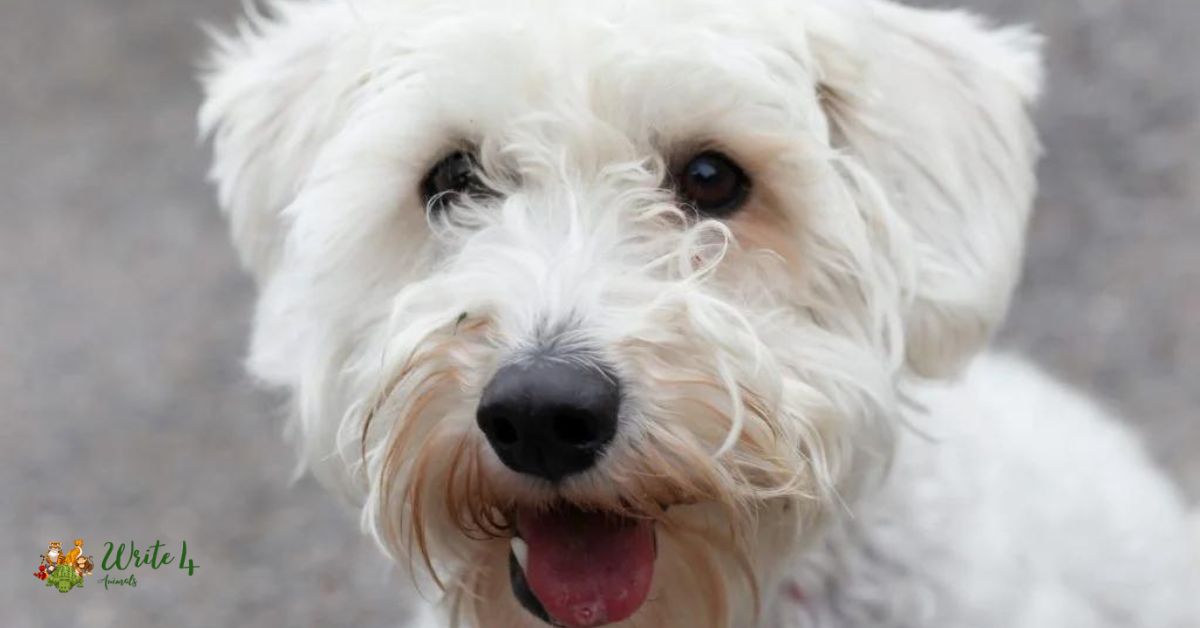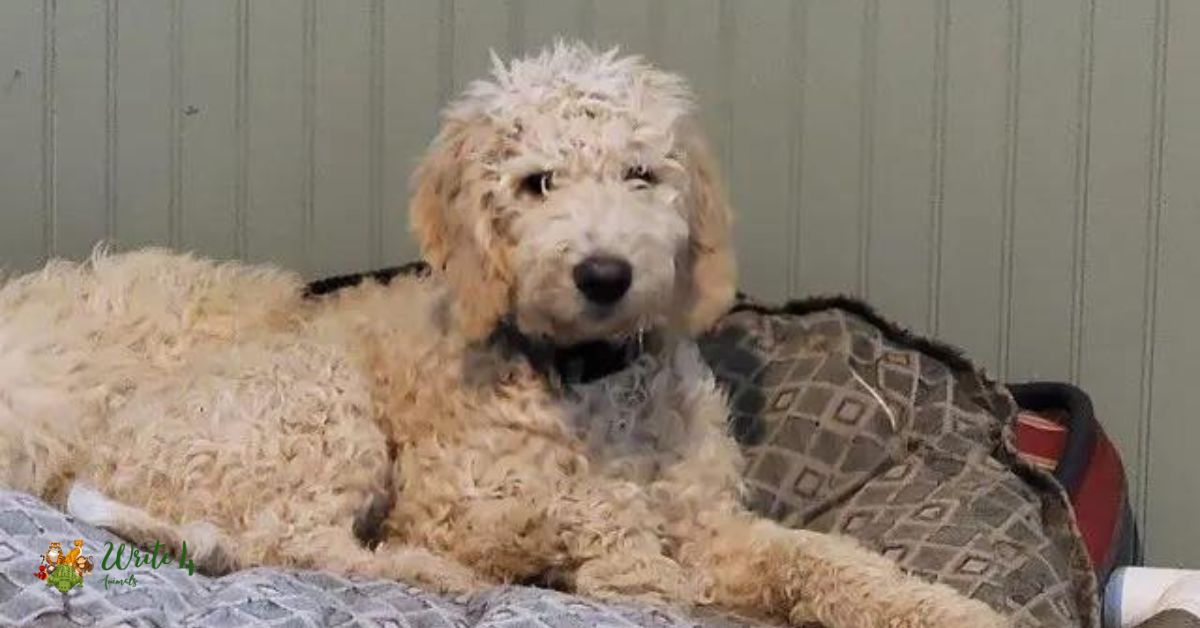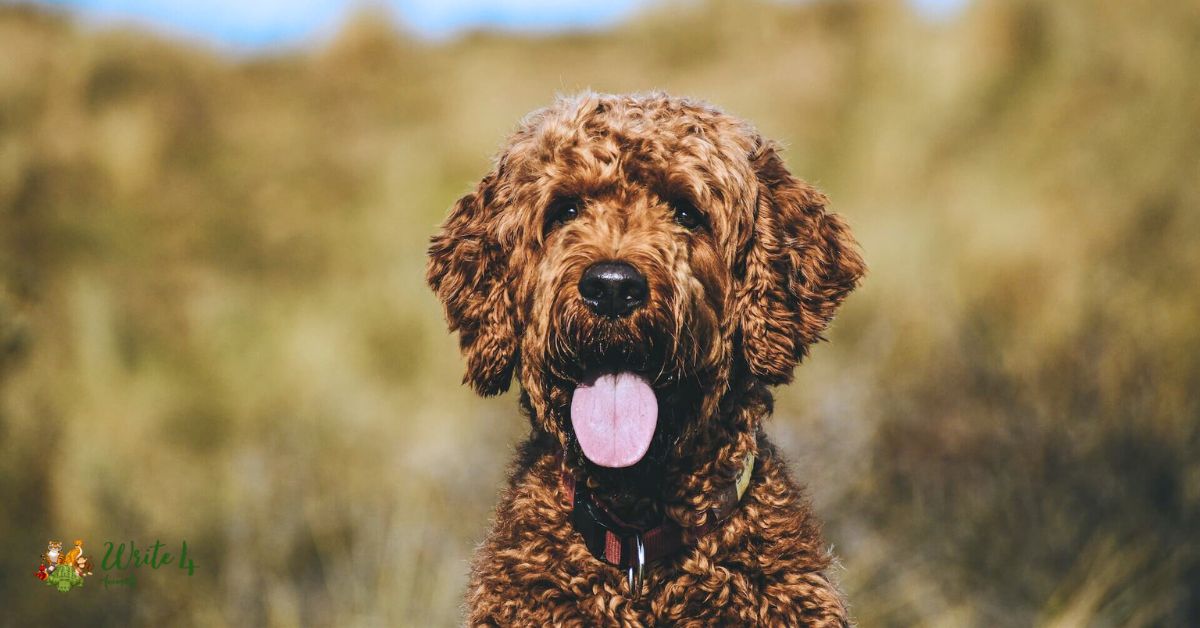In the world of canine companions, new and unique breeds are continually captivating the hearts of dog lovers everywhere. One such breed that has been gaining attention is the Snickerdoodle dog.
With its charming name and endearing qualities, the Snickerdoodle dog has piqued the curiosity of many. If you’re intrigued by this adorable breed, you’re in the right place. In this comprehensive guide, we’ll explore everything you need to know about the Snickerdoodle dog breed, from its origins to its temperament and care requirements.
About Snickerdoodle Dog
History of the Snickerdoodle Dog
The Snicker doodle dog is a relatively recent addition to the world of canine companions, resulting from the intentional crossbreeding of two well-loved breeds: the Poodle and the Cavalier King Charles Spaniel. This delightful hybrid is a product of careful breeding aimed at combining the hypoallergenic and intelligent traits of the Poodle with the friendly and affectionate nature of the Cavalier King Charles Spaniel.
While the Snickerdoodle dog is not yet officially recognized by major kennel clubs, its popularity has been steadily growing among dog enthusiasts. Breeders who focus on responsible breeding practices are working to establish and refine the breed’s characteristics, appearance, and temperament. As more people discover the charm of the Snicker doodle dog, its history continues to unfold as a testament to the art of purposeful crossbreeding.
Appearance of the Snickerdoodle Dog
The Snickerdoodle dog displays a charming and diverse array of appearances, owing to its mixed lineage. These dogs often feature a soft and curly coat that can vary from wavy to tightly curled, a trait inherited from the Poodle side of their ancestry.
Their coat colors encompass a wide spectrum, including shades of cream, brown, black, and even parti-color combinations that can create a visually striking and unique appearance.
 In terms of size, Snickerdoodle dogs typically fall within the small to medium range. Their stature is influenced by the sizes of their parent breeds, with Poodles being available in Standard, Miniature, and Toy sizes, and Cavalier King Charles Spaniels being a smaller breed. This variance in size adds to the charming diversity of the Snickerdoodle dog’s appearance.
In terms of size, Snickerdoodle dogs typically fall within the small to medium range. Their stature is influenced by the sizes of their parent breeds, with Poodles being available in Standard, Miniature, and Toy sizes, and Cavalier King Charles Spaniels being a smaller breed. This variance in size adds to the charming diversity of the Snickerdoodle dog’s appearance.
Snickerdoodle Dog Temperament and Activities
The Snickerdoodle dog breed is celebrated not only for its charming appearance but also for its delightful temperament. These dogs are known for their affectionate, friendly, and gentle nature. Combining the best qualities of the Poodle and the Cavalier King Charles Spaniel, Snickerdoodles tend to be excellent companions, forming strong bonds with their owners.
Their affectionate disposition makes them well-suited for families, singles, or seniors seeking a loving and devoted pet. Snickerdoodle dogs thrive on human interaction and eagerly partake in activities that involve their family members. Their playful demeanor and social nature make them great playmates for children and other pets.
To keep their minds engaged and energy levels balanced, Snickerdoodle dogs enjoy a variety of activities. Daily walks, interactive play sessions, and engaging in simple obedience training can provide them with the mental stimulation they crave. Their Poodle lineage contributes to their intelligence, making training sessions enjoyable and effective.
Snickerdoodle Dog Personality and Behavior
The Snickerdoodle dog’s personality is a harmonious blend of traits inherited from its parent breeds, the Poodle and the Cavalier King Charles Spaniel. Known for their affectionate and friendly nature, Snickerdoodles are often described as loving companions that form strong bonds with their owners. Their social demeanor makes them well-suited for families, singles, or seniors seeking a devoted and gentle pet.
These dogs thrive on human interaction and eagerly participate in various activities. Snickerdoodles are playful and enjoy engaging in interactive play sessions, walks, and even simple training exercises. Their intelligence, stemming from their Poodle lineage, makes them quick learners and responsive to positive reinforcement training methods.
While their loving nature makes them great with children and other pets, early socialization is important to ensure they grow into well-mannered and confident individuals. Snickerdoodles’ affectionate behavior extends to their tendency to cuddle and provide comfort to their owners, making them wonderful emotional support companions.
Video Credit – Pet Zone
Snickerdoodle Dog Health Issues: What You Need to Know
The Snickerdoodle dog, a delightful crossbreed between the Poodle and the Cavalier King Charles Spaniel, inherits traits from both parent breeds. While hybrid vigor can reduce the risk of some inherited health issues, it’s essential for prospective owners to be aware of potential health concerns that can affect these charming companions.
1. Hip Dysplasia: Both Poodles and Cavalier King Charles Spaniels can be susceptible to hip dysplasia, a condition where the hip joint doesn’t develop properly. Regular exercise, maintaining a healthy weight, and proper breeding practices can help mitigate this risk.
2. Heart Conditions: Cavalier King Charles Spaniels are known to have a higher risk of heart conditions such as mitral valve disease. Regular veterinary check-ups and screenings can aid in early detection and management of these issues.
3. Eye Problems: Both parent breeds can be prone to various eye problems, including cataracts and progressive retinal atrophy. Regular eye exams and maintaining a clean eye area can contribute to good ocular health.
4. Allergies: Allergies, particularly skin allergies, can affect both Poodles and Cavalier King Charles Spaniels. Being attentive to any signs of itching, redness, or irritation and consulting a veterinarian can help manage these issues.
5. Ear Infections: Due to their floppy ears, Cavalier King Charles Spaniels are prone to ear infections. Regular cleaning and proper ear care can help prevent this common problem.
6. Dental Health: Small breeds like the Cavalier King Charles Spaniel can experience dental issues. Regular teeth brushing, dental treats, and professional cleanings can help maintain their oral health.
Snickerdoodle Dog Care Tips
Grooming for Snickerdoodle Dog
Grooming is an essential aspect of caring for your Snickerdoodle dog, ensuring their coat remains healthy, clean, and free from tangles or mats. The grooming needs of your Snickerdoodle may vary depending on their coat type, which can range from wavy to curly due to their Poodle lineage. Here are some grooming tips to help your furry companion look and feel their best:

Brushing: Regular brushing helps prevent matting and keeps their coat in optimal condition. The frequency of brushing depends on their coat type; wavy coats might require less frequent brushing than tightly curled ones.
Bathing: Bathing should be done as needed, typically every 4 to 8 weeks. Use a gentle dog shampoo and ensure thorough rinsing to prevent skin irritation. Regular bathing helps keep their coat clean and free from dirt.
Coat Trimming: Depending on their coat type and your preference, occasional trimming may be necessary. Some owners prefer a shorter trim for easier maintenance, while others opt for a more natural look.
Ear Care: Regularly clean their ears to prevent infections. Gently wipe the outer ear with a damp cloth, but avoid inserting anything into the ear canal.
Nail Trimming: Trim their nails regularly to prevent overgrowth and discomfort. If you’re not comfortable doing this yourself, consider seeking professional help.
Dental Care: Brush their teeth regularly to maintain good oral health. Dental treats and toys can also contribute to dental hygiene
Training and Exercise Requirements for Snickerdoodle Dog
Snickerdoodle dogs are intelligent and social companions that thrive on mental stimulation and physical activity. To ensure their well-being and prevent boredom-related behaviors, consider the following training and exercise guidelines:
Basic Obedience: Start with basic obedience training, teaching commands like sit, stay, come, and leash walking. Positive reinforcement methods work well with Snickerdoodles.
Socialization: Early socialization with various people, dogs, and environments is crucial to ensure they become well-adjusted and confident adults.
Mental Stimulation: Engage their minds with puzzle toys, treat-dispensing toys, and interactive games that challenge their problem-solving skills.
Physical Exercise: Daily walks, play sessions, and off-leash time in a secure area provide the physical exercise they need. Remember that their energy levels can vary, so tailor the intensity of exercise to their individual preferences.
Training Classes: Consider enrolling in training classes that offer structured learning and opportunities for socialization with other dogs and people.
Diet and Nutrition for Snickerdoodle Dog breed
Maintaining a balanced and nutritious diet is crucial for the health and well-being of your Snickerdoodle dog. While individual dietary needs can vary based on factors such as age, size, activity level, and health status, here are some general guidelines:
High-Quality Dog Food: Choose a reputable brand of dog food that lists real meat as the main ingredient and is appropriate for their life stage (puppy, adult, senior).
Portion Control: Avoid overfeeding by following feeding guidelines on the dog food packaging and adjusting portions based on their weight and activity level.
Regular Feeding Schedule: Establish a consistent feeding schedule to help regulate their digestion and prevent overeating.
Fresh Water: Always provide access to clean, fresh water to keep them hydrated.
Treats: Use treats sparingly and opt for healthy, low-calorie options to avoid excessive weight gain.
Snickerdoodle Dog Price Around the World
The price of a Snickerdoodle dog can vary significantly depending on factors such as location, breeder reputation, lineage, coat type, and availability. Since Snickerdoodles are a designer crossbreed and not officially recognized by major kennel clubs, their prices can fluctuate greatly. Here’s a general overview of Snickerdoodle dog prices in different parts of the world:
United States: Snickerdoodle dog prices in the United States can range from $1,000 to $3,000 or even more. Prices tend to be higher in areas with higher demand and living costs.
United Kingdom: In the UK, Snickerdoodle puppies might cost around £800 to £2,500 or more, depending on various factors.
Australia: Prices for Snickerdoodle dogs in Australia can vary from AUD $1,500 to $3,500, with potential variations based on location and breeder reputation.
Canada: Snickerdoodle dog prices in Canada can range from CAD $1,200 to $3,000 or more, depending on the breeder and the specific lineage.
Europe: Prices across Europe can vary widely, with some countries having more demand than others. Generally, prices might fall within the range of €800 to €2,500 or more.
Various Factors That Affect the Price of Snickerdoodle Dog
Breeder Reputation: Reputable breeders who prioritize the health and well-being of their dogs might charge higher prices due to the quality of their breeding program.
Lineage: Puppies with well-documented and desirable lineage might command higher prices.
Coat Type and Color: Certain coat types or unique colors can influence the price. Puppies with hypoallergenic coats might be priced higher.
Demand and Availability: Areas with high demand and limited availability might see higher prices.
Health Testing: Breeders who conduct health testing on their breeding dogs might factor these costs into puppy prices.
Location: Living costs and demand in a particular region or country can significantly impact prices.
Age: Older puppies or dogs might be priced lower than younger ones.
Included Services: Puppies that come with vaccinations, microchipping, and initial veterinary care might have higher prices.
Snicker doodle Dog Lifespan
The Snickerdoodle dog, a delightful crossbreed with Poodle and Cavalier King Charles Spaniel heritage, often enjoys a relatively healthy and fulfilling life. While individual lifespans can vary based on genetics, care, and overall health maintenance, Snickerdoodle dogs generally have an average lifespan of 10 to 15 years.
Snickerdoodle Dog Maintenance Cost
Owning a Snickerdoodle dog comes with certain financial responsibilities to ensure their well-being and quality of life. While maintenance costs can vary based on factors such as location, size, and specific needs, here are some key considerations to keep in mind:
1. Veterinary Care: Regular check-ups, vaccinations, preventive medications, and potential medical treatments are integral to your Snickerdoodle’s health. Budgeting for routine and unexpected veterinary expenses is essential.
2. Food and Nutrition: Providing high-quality dog food that meets their nutritional needs is crucial. The cost will depend on the size, age, and dietary requirements of your Snicker doodle.
3. Grooming: Snickerdoodle dogs may require regular grooming, which includes brushing, bathing, and potential professional grooming. Grooming costs can vary depending on coat type and grooming frequency.
4. Supplies: Basic supplies such as a leash, collar, toys, bedding, bowls, and grooming tools are necessary for your dog’s comfort and well-being.
5. Training and Socialization: Enrolling your Snickerdoodle in training classes and ensuring proper socialization may require some investment in terms of time and money.
6. Emergency Fund: Having an emergency fund set aside for unexpected medical expenses is a wise practice to ensure you can provide necessary care in case of emergencies.
Facts about Snicker doodle dog
1. Snickerdoodle dogs are a crossbreed between the Poodle and the Cavalier King Charles Spaniel.
2. They are often referred to as “designer dogs” due to their intentional crossbreeding.
3. The name “Snickerdoodle” is as charming as the breed itself, capturing attention with its uniqueness.
4. Their appearance can vary widely, with coat colors ranging from cream and brown to black and parti-color combinations.
5. Snickerdoodles typically have soft and curly coats inherited from their Poodle lineage.
6. These dogs are known for their friendly and affectionate nature, making them excellent companions.
7. Their intelligence, derived from both parent breeds, makes them quick learners during training sessions.
8. Snickerdoodles require regular grooming to maintain their coat’s health and prevent matting.
9. They thrive on human interaction and enjoy participating in various activities with their families.
10. Proper socialization from a young age is essential to ensure their confident and well-adjusted behavior.
Frequently Asked Questions
[sc_fs_multi_faq headline-0=”h4″ question-0=”What is a Snickerdoodle dog?” answer-0=”A Snickerdoodle dog is a crossbreed between the Poodle and the Cavalier King Charles Spaniel. This intentional crossbreeding aims to combine the hypoallergenic qualities of the Poodle with the friendly and affectionate nature of the Cavalier King Charles Spaniel.” image-0=”” headline-1=”h4″ question-1=”Are Snickerdoodle dogs hypoallergenic?” answer-1=”Snickerdoodle dogs often have hypoallergenic coats due to their Poodle lineage, but individual reactions to allergens can vary. Spending time with a Snickerdoodle dog before adopting is recommended for those with allergies.” image-1=”” headline-2=”h4″ question-2=”What is the typical lifespan of a Snickerdoodle dog?” answer-2=”Snickerdoodle dogs generally have an average lifespan of 10 to 15 years, depending on factors such as genetics, care, and overall health maintenance.” image-2=”” headline-3=”h4″ question-3=”How much exercise do Snickerdoodle dogs need?” answer-3=”Snickerdoodle dogs have moderate energy levels and benefit from daily walks, play sessions, and mental stimulation activities. Tailor their exercise routine to their individual preferences.” image-3=”” headline-4=”h4″ question-4=”Are Snickerdoodle dogs good with children and other pets?” answer-4=”Yes, Snickerdoodle dogs are known for their friendly and affectionate nature, making them great companions for families, children, and other pets. Early socialization is important to ensure positive interactions.” image-4=”” headline-5=”h4″ question-5=”Do Snickerdoodle dogs require a lot of grooming?” answer-5=”Grooming needs depend on their coat type. Snickerdoodle dogs with curly coats might require more frequent brushing to prevent matting. Regular bathing, ear cleaning, and nail trimming are also necessary.” image-5=”” headline-6=”h4″ question-6=”Are Snickerdoodle dogs easy to train?” answer-6=”Yes, Snickerdoodle dogs are intelligent and eager to please, making them relatively easy to train. Positive reinforcement methods work well in teaching them commands and behaviors.” image-6=”” headline-7=”h4″ question-7=”How much do Snickerdoodle dogs cost?” answer-7=”The price of Snickerdoodle dogs varies based on factors like location, breeder reputation, coat type, and lineage. Prices can range from a few hundred to several thousand dollars.” image-7=”” headline-8=”h4″ question-8=”Are Snickerdoodle dogs recognized by kennel clubs?” answer-8=”Snickerdoodle dogs are not officially recognized by major kennel clubs as they are a relatively new designer breed.” image-8=”” headline-9=”h4″ question-9=”What kind of home is suitable for a Snickerdoodle dog?” answer-9=”Snickerdoodle dogs are adaptable and can thrive in various living environments, such as apartments or houses. They require companionship, exercise, and mental stimulation to be happy and healthy.” image-9=”” count=”10″ html=”true” css_class=””]
Recommended
